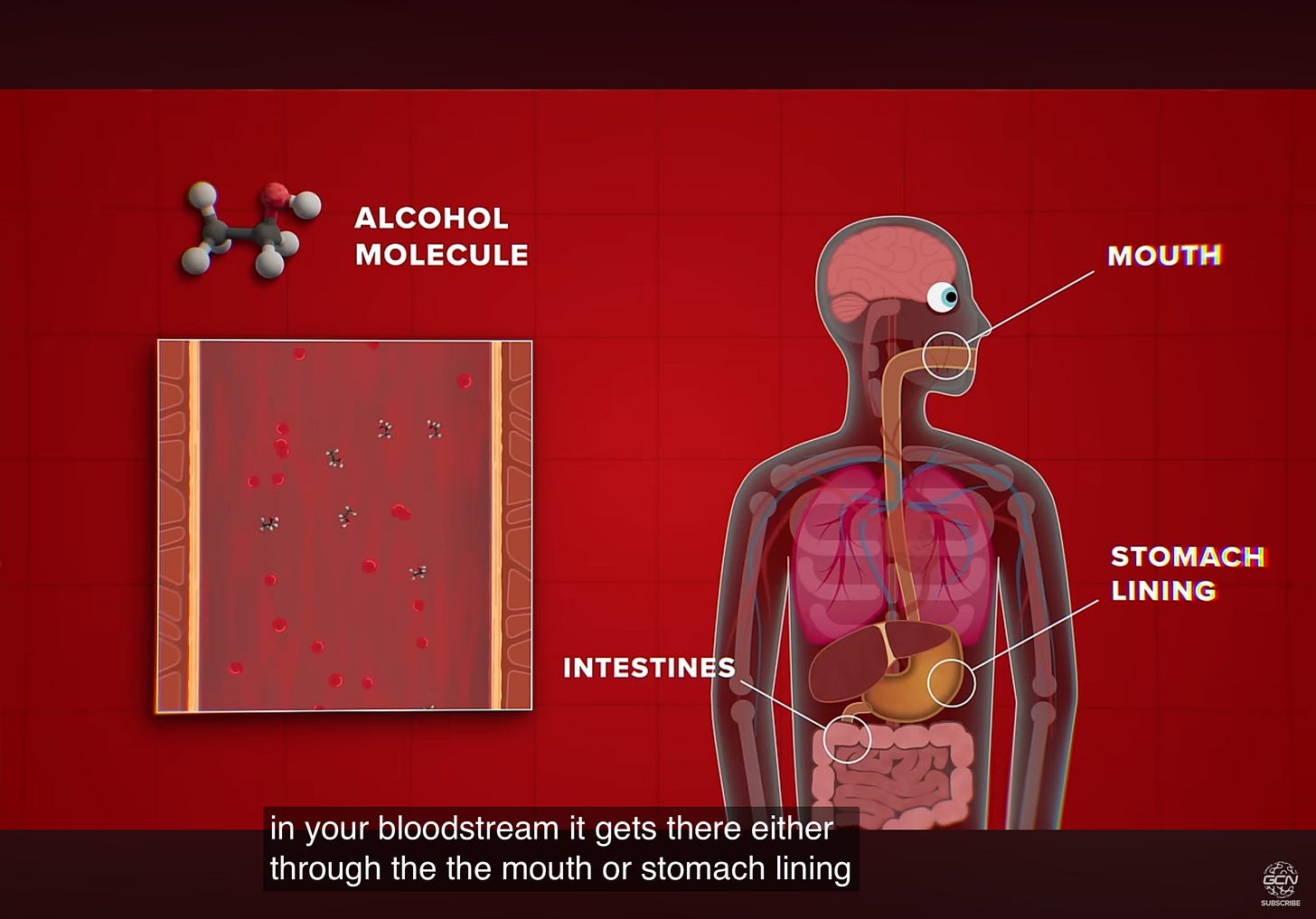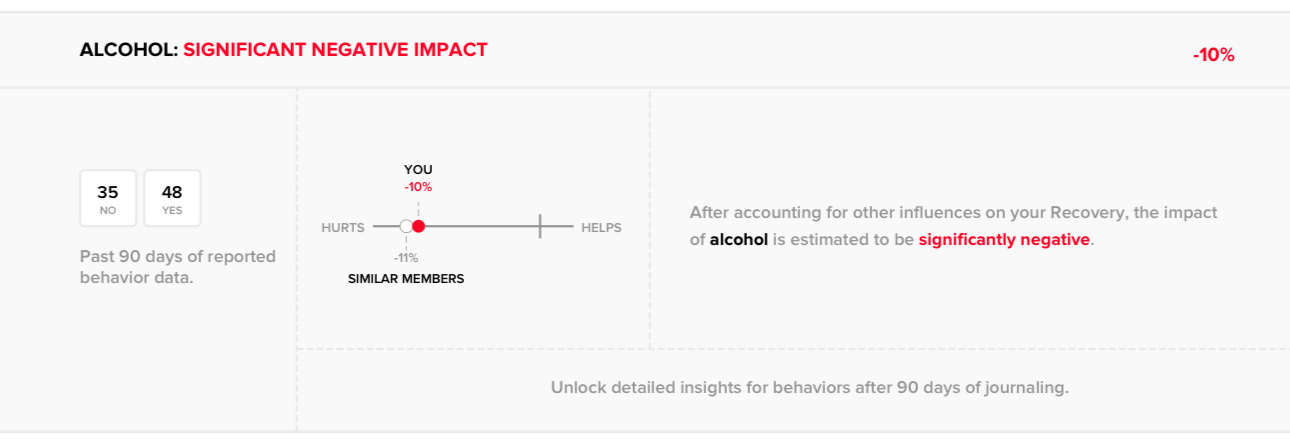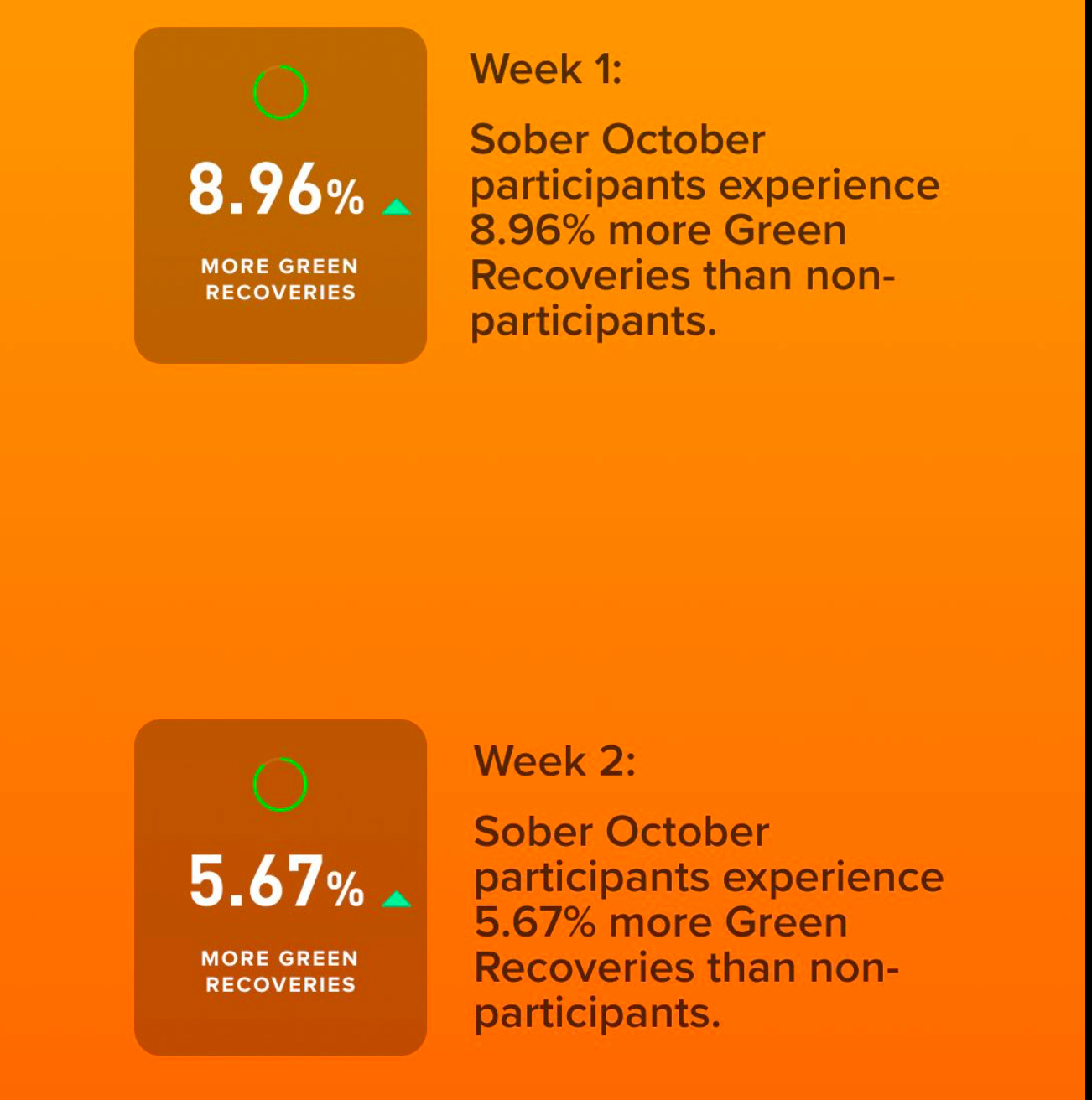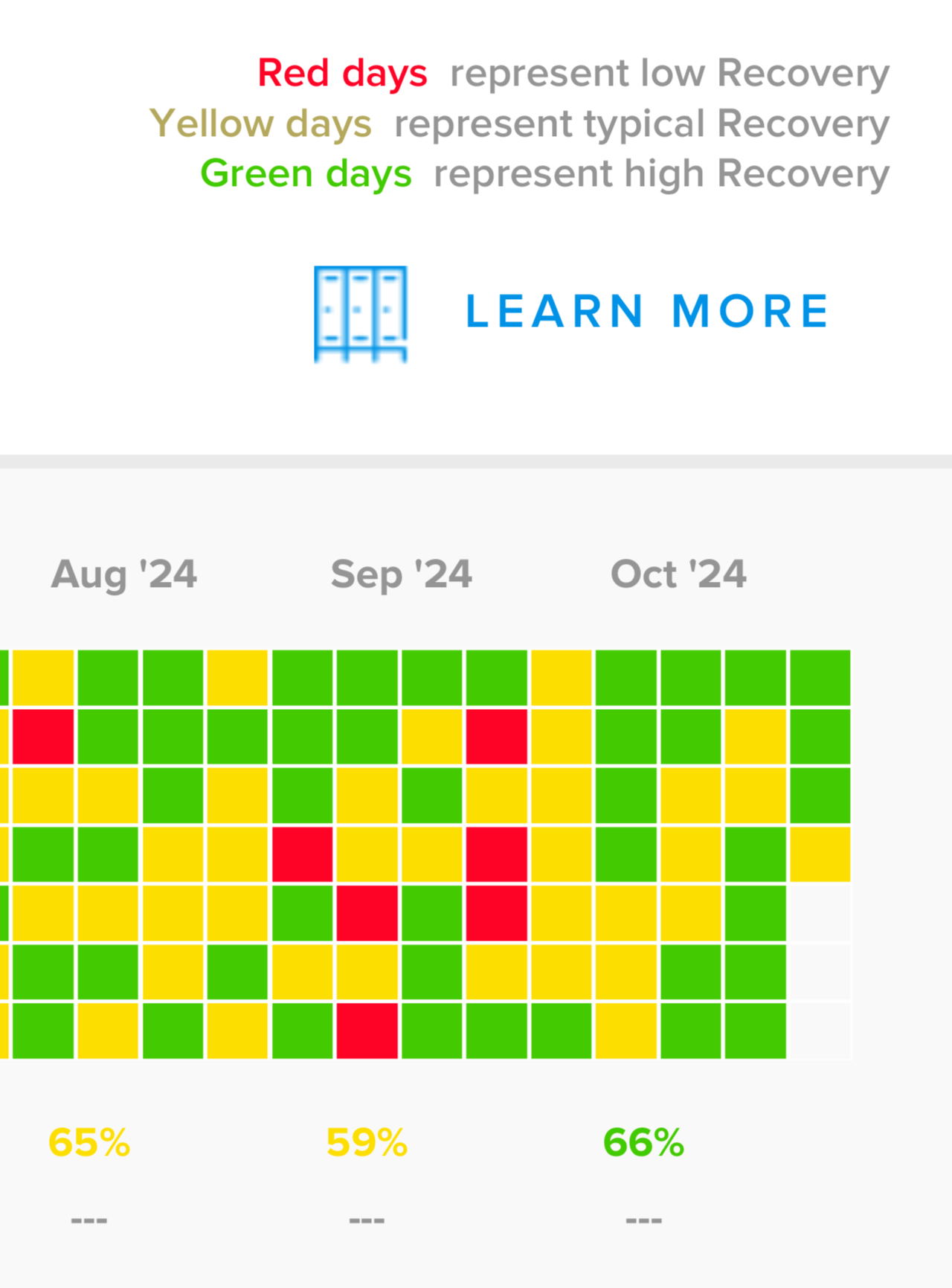The Wine Dilemma: Balancing Joy and Performance
A personal journey into the cultural allure of alcohol, its hidden costs, and how mindful choices can transform health and well-being
Abstract
In this article, I explore the complex relationship between alcohol consumption and its impact on health, performance, and overall well-being. While wine and other alcoholic beverages have historically been celebrated as part of cultural and social traditions, modern scientific understanding underscores their toxic effects on the body. Drawing on personal observations, data from wearable devices, and references to scientific studies, I delve into the physiological effects of alcohol, including its impact on my sleep, recovery, and hydration. I reflect on the balance between enjoying life’s pleasures and striving for optimal health, offering a deeply personal yet practical perspective on whether alcohol truly enhances or detracts from a fulfilling life.
Introduction
I come from a family in Northern Italy, where wine has always been a staple at the table. My father, and before him my grandfather, considered wine the main beverage for meals, both at lunch and dinner. I recall that around the age of fourteen, us kids were first offered a glass of wine mixed with water. The scenario was different for women; my mother typically only drank wine on special occasions, and I believe my sister was never offered any until she turned eighteen. For us boys, however, it was almost like a rite of passage – drinking a bit of wine like real men, the true adults.
The tradition of wine in Italy dates back to Roman times, when it was diluted with water to lower its alcohol content, which was higher than modern wines. Those who drank wine undiluted were seen as either barbarians or alcoholics, as they risked drunkenness, unlike the civilized man who controlled himself (and, by extension, nature) by mixing it with water. That said, the wine of that era was often quite different from today’s, frequently leaning toward vinegar. (1)
Wine was the foundation of every feast and banquet, and it remained so for thousands of years. In other parts of the world, this role was filled by beer, but the use of alcohol to celebrate special occasions and enjoy life has persisted for millennia.
Now, it’s widely known that alcohol, whether in wine, beer, or other forms, is a toxic substance for our bodies. Our systems work hard to eliminate it as quickly as possible. Over time, this effort damages our organs and increases the risk of cardiovascular issues, cancer, dementia, and other conditions that Peter Attia, in his book on longevity, identifies as the five main causes of death. (2)
So why do we drink if we know it’s harmful?
The answer is simple: because we want to enjoy life, don’t we? We need to relax. But does wine (or alcohol in general) truly help us relax, relieve stress, and recharge for what’s ahead?
Discussion
Is Wine Toxic or Beneficial?
Wine, like beer and any alcoholic beverage, contains ethanol, which is toxic to our bodies.
In wine, ethanol (ethyl alcohol) results from the fermentation process following grape pressing. During this process, yeast transforms the simple sugars in the must – mainly glucose and fructose – into ethyl alcohol and carbon dioxide. This process occurs naturally due to the yeast on the grape skins or can be induced by adding selected yeast cultures.
Beer undergoes a similar process with grains like barley, vodka with potatoes, and so on.
Why is it toxic? When ethanol is consumed, it is metabolized primarily in the liver by enzymes and converted into acetaldehyde, a highly toxic and reactive substance.
Metabolizing alcohol is a taxing process for our bodies, and despite what we may perceive, it’s far from an effective way to relax.
According to the World Health Organization (WHO), no amount of alcohol is considered safe for health.(3)
“A Glass a Day Is Good for You”
In scientific terms, the notion that a glass of wine a day is good for you is a myth. While wine does have antioxidant properties, any potential benefits are outweighed by the toxicity of its alcohol content.
That said, this doesn’t mean you won’t feel good while drinking it. As we’ll explore further, the reality is more complex than expected.
I want to share a full perspective, looking at both the scientific and the physical/emotional aspects, busting a few myths, and detailing what I’ve learned through years of personal experience.
What Happens in Our Bodies When We Drink Wine or Beer
Within about a minute of the first sip, alcohol (ethanol) enters our bloodstream via the mouth, stomach, and intestines.

After 5–10 minutes, its effects reach the brain.
The relaxation you feel after drinking wine is primarily due to alcohol’s impact on neurotransmitters that regulate brain activity:
1. Increased GABA activity: GABA is an inhibitory neurotransmitter that slows brain activity, inducing calm and relaxation. This is similar to how anti-anxiety medications like benzodiazepines work.
2. Decreased glutamate activity: Glutamate typically stimulates brain activity. By reducing its effects, alcohol further slows the brain and reduces stress.
3. Dopamine release: Alcohol triggers the release of dopamine, a neurotransmitter associated with pleasure and reward, creating a sense of well-being and mild euphoria.
The Alcohol Paradox: The More You Drink, the Thirstier You Feel
You’ve likely experienced this: after a night of drinking, you wake up parched, feeling as though you’ve crossed a desert. Alcohol doesn’t hydrate – it dehydrates.
This is one of the most counterintuitive aspects of alcohol.
The metabolism of alcohol contributes to dehydration through various processes:
1. The liver uses water to break down alcohol.
2. Acetaldehyde, produced during alcohol metabolism, requires additional water for elimination.
3. Alcohol causes vasodilation (raising body temperature), leading to heat loss and sweating, which further depletes fluids.
4. Alcohol reduces the production of the antidiuretic hormone (vasopressin), increasing urine output.
A Cold Beer After a Run
Drinking a cold beer after a workout gives the illusion of quenching thirst and works initially because it’s cold and refreshing. However, shortly afterward, the alcohol leads to dehydration, diverting your body’s energy toward metabolizing it and hindering recovery.
It Helps Me Sleep Like a Baby
While alcohol might seem to aid sleep due to its sedative effects, it actually disrupts sleep quality. It interferes with the circadian rhythm and suppresses melatonin production, leading to difficulty falling asleep and a less restful slumber.
Although alcohol induces initial drowsiness, it often causes frequent awakenings due to dehydration and significantly reduces REM sleep, which is crucial for memory consolidation and emotional processing. As a result, you may wake up feeling unrefreshed, fatigued, and irritable.
At this point, you might say, “Okay, I get it, it’s not good for me, but I still need to enjoy life, right?”
And I understand you. Let me share what I discovered about myself after years of trying to fully enjoy life without compromising my performance.
What I Have Tried and Learned About Myself
Over the past ten years, I have tried nearly every technological device capable of monitoring my physical performance, from Apple Watch and Garmin to Whoop or Oura Ring. For those unfamiliar, Whoop and Oura Ring are wearable devices designed to monitor sleep and recovery. I’ve included links in the references.
As a data-oriented person, I built a solid foundation for my observations.
Recovery and High Performance
I’ve discovered that sleep is one of the most critical aspects of my performance, both at work and in life in general. If I sleep poorly or too little, my mood the following day tends to be worse, my motivation suffers, and I am generally slower and more irritable. These effects often feed into one another.
Additionally, if I sleep poorly and feel tired, I tend to eat more, especially sugary foods, which creates a vicious cycle of further fatigue. While this is a natural process – our body seeks energy when it feels tired – it’s counterproductive and worsens exhaustion.
Unfortunately, alcohol has devastating effects on my sleep.
To understand this, I simply look at the data comparing nights when I consumed alcohol to those when I didn’t.
Alcohol’s Impact on Sleep
According to my Whoop insights, alcohol is by far the worst factor I’ve monitored in relation to sleep quality. My experience aligns with findings from millions of other Whoop users.
The most severe effects, however, are on my recovery.
Whoop (and equivalent devices) measures recovery during sleep with a score ranging from 1 (exhausted) to 100 (fully recovered). Scores below 34 indicate “red” (strained), 34–67 is “yellow,” and above 67 is “green” (well recovered). Details about how this is calculated are included in the references.
Every time I’ve consumed alcohol over the past three years, the following morning I was either “red” or “yellow.” While drinking at lunch is slightly better than drinking at dinner, it’s still significantly worse compared to drinking only water.
And believe me, even one glass of wine is enough. My heart struggles to relax during the night, my body temperature remains elevated, and I become dehydrated.
You might argue that correlation is not causation: when you drink, you go to bed later, eat more, and are more tired. But no, I’ve tried every scenario. I recover far less effectively.
I’m not alone in this. In October 2024, Whoop conducted an experiment asking its users to stop drinking alcohol for the entire month and analyzed the results of those who participated versus those who didn’t. The recovery scores of those who abstained improved significantly.
My Experiment
In my case, the effects were striking. In September, I had a few nights where I drank two or more glasses at dinner with friends or clients (as seen in the “red” days). In October, I completely abstained.
The rest of my activities, including the number of flights and hours of sleep, were similar. Yet, in October, my recovery significantly improved: zero “red” days and many more “green” days.
Why Recovery Matters
You might think, “Who cares?” But no – with better recovery, my mood is noticeably improved, my brain processes information faster (I can tell immediately), and my workouts are better, creating a positive cycle. The better I feel, the more I train, the better I sleep and recover, and so on.
Weekend Drinking vs. Daily Drinking
I tried drinking only on weekends and avoiding alcohol during family dinners at home, but I didn’t notice significant benefits compared to drinking a glass of wine every night.
The reason is that detoxifying from alcohol takes time, even with moderate consumption. In my experience, noticeable benefits emerge only after two or three weeks of abstinence. I notice this in my vitals – resting heart rate, HRV (heart rate variability), and breathing – and in my energy levels and mood at work.
However, if you start drinking again after a detox period, the negative effects are much more pronounced. I remember having a single glass of prosecco after a month of not drinking, and the next day it felt like I had consumed an entire bottle.
Of course, sensitivity varies from person to person. Even with alcohol, the body “trains” itself, and stopping reduces your ability to metabolize it quickly.
Flying and Alcohol
Here, I believe I have solid experience. Over the past three years, I’ve averaged about one flight per week, totaling approximately 200 hours of flight time in 2024 alone.
I’ve realized one thing: to arrive rested and energized, you need to drink water – and lots of it.
While wine might help you fall asleep during a long flight, the dehydration it causes, compounded by pressurized cabin air, will lead to poor sleep quality.
Sleep is a complex process, and if your body is battling altitude and alcohol, you’re not helping yourself.
I understand the temptation, especially if you’re traveling in business or first class and see bottles of fine wine being offered. However, if you want to maintain peak cognitive and physical performance after landing, alcohol should be avoided entirely.
If, on the other hand, you don’t care about arriving refreshed because you have nothing important to do, then by all means, indulge.
Performances at Full Potential or “La Bella Vita”
As a good Italian, I’d like to say both. I’d love to perform at my best and enjoy life to the fullest.
Frankly, I believe it’s possible.
If you’re focused on achieving your full potential, giving up alcohol can make a huge difference. My advice is to try abstaining for at least a month and observe how you feel. If your mood improves, you feel more energetic, and you’re in a phase where you want to maximize your physical performance, you might consider giving it up altogether.
A period of complete detox will help you recognize alcohol’s effects, and you can monitor the results (I recommend a month of Whoop; the first month is free – link in references).
Personally, I still enjoy the idea of having a glass or two of good wine or beer, but I’m tired of how I feel a few hours later. I’ve learned to recognize it: it feels like I’m slowed down. Often, I regret drinking.
If this has happened to you or happens in the future, here’s a good way to decide without regret. When someone offers you a drink or you’re unsure what to do, pause before answering. Take a few minutes and try to focus, not on how you’ll feel while drinking, but on how you’ll feel afterward.
If you still want that glass, go ahead and enjoy it without second thoughts. Otherwise, skip it – it’s not worth it.
Conclusions
Through years of personal experience and experimentation, I’ve learned that alcohol profoundly impacts my body and mind, even in small amounts. It disrupts my sleep, hinders my recovery, and leaves me feeling slower and less motivated the next day. While I still appreciate the cultural and social enjoyment of a good glass of wine, I’ve found that the downsides often outweigh the fleeting pleasure.
Taking breaks from alcohol has shown me how much better I can feel—more energetic, sharper, and more motivated. For anyone curious, I recommend trying a month-long detox to experience the difference for yourself. Personally, I’ve decided to avoid drinking as much as possible, but this is a personal choice. What I suggest is approaching it with greater awareness. Ultimately, I’ve discovered that life’s richness doesn’t depend on alcohol—it depends on how We choose to live it.






Taking breaks from alcohol has shown me how much better I can feel—more energetic, sharper, and more motivated”. It’s powerful affirmation for anyone considering quitting. 💪
Love it, such an illuminating piece. Thank you for sharing your personal journey!